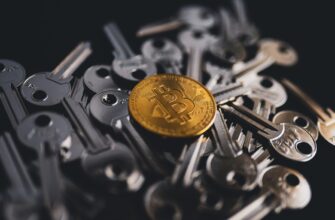Understanding Financial Privacy in a KYC World
Know Your Customer (KYC) regulations require financial institutions to verify user identities, creating digital footprints for every transaction. While crucial for preventing fraud, many seek legitimate financial privacy through anonymization. This guide explores lawful methods to anonymize funds without KYC, focusing on privacy preservation within legal boundaries. Remember: Anonymization ≠ Illicit activity – it’s about controlling your financial data.
Legitimate Methods for Anonymizing Funds Without KYC
Important: These techniques prioritize privacy but must comply with local laws. Consult legal counsel before implementation.
- Privacy-Focused Cryptocurrencies: Utilize coins like Monero (XMR) or Zcash (ZEC) with built-in obfuscation. Monero hides sender, receiver, and amount via ring signatures and stealth addresses. Acquire through:
- Peer-to-peer (P2P) exchanges (LocalMonero, Haveno)
- Decentralized exchanges (DEXs) like Bisq
- Mining or faucets
- Non-KYC Crypto Exchanges: Platforms like Hodl Hodl or FixedFloat allow trading without ID verification. Typically feature:
- Lower transaction limits
- BTC/XMR pairs
- Escrow-protected P2P trades
- Prepaid Cards & Vouchers: Purchase physical gift cards or prepaid debit cards with cash. Use to:
- Buy cryptocurrencies anonymously
- Make online purchases
- Convert to money orders
- Decentralized Finance (DeFi) Swaps: Use DEX aggregators (e.g., Thorchain) to swap coins across chains without KYC. Combine with privacy wallets like Samourai for enhanced anonymity.
- Cash-to-Crypto Services: Bitcoin ATMs with no-ID options (under $900) or in-person cash trades via platforms like LocalCryptos.
Critical Risks & Legal Considerations
- Regulatory Scrutiny: Large anonymous transactions may trigger AML flags
- Scam Vulnerability: Non-KYC platforms have higher fraud risks – verify platform reputations
- Irreversible Errors: No customer support for anonymous transactions
- Tax Compliance: Anonymized funds still require tax reporting
- Technical Complexity: Wallet security becomes your sole responsibility
Legal Note: Structuring transactions to evade reporting requirements is illegal in most jurisdictions. This guide covers privacy, not tax evasion.
FAQ: Anonymizing Funds Without KYC
Q: Is anonymizing money without KYC illegal?
A: Privacy techniques themselves aren’t illegal, but using them for money laundering, tax evasion, or illegal activities is unlawful. Compliance with financial regulations remains mandatory.
Q: Can I completely erase transaction history?
A> True erasure is nearly impossible. Blockchain analysis can sometimes trace even privacy coins. Focus on practical obscurity rather than absolute anonymity.
Q: What’s the most secure non-KYC method?
A> Combining cash purchases of privacy coins with decentralized swaps offers strong privacy, but requires technical knowledge. Always prioritize wallet security.
Q: Do VPNs/Tor make transactions anonymous?
A> They hide IP addresses but don’t anonymize the transaction itself. Use alongside cryptographic privacy tools for layered protection.
Q: How do regulators view these methods?
A> Authorities increasingly monitor privacy tools. FATF’s “Travel Rule” now applies to VASPs handling privacy coins. Stay informed about evolving regulations.
Balancing Privacy and Compliance
Financial anonymity without KYC involves navigating complex technical and legal landscapes. While privacy coins, P2P exchanges, and cash methods provide options, they demand heightened personal responsibility. Always prioritize legal compliance, understand jurisdictional risks, and implement robust security measures. Financial privacy is a legitimate goal – pursue it wisely within regulatory frameworks.








